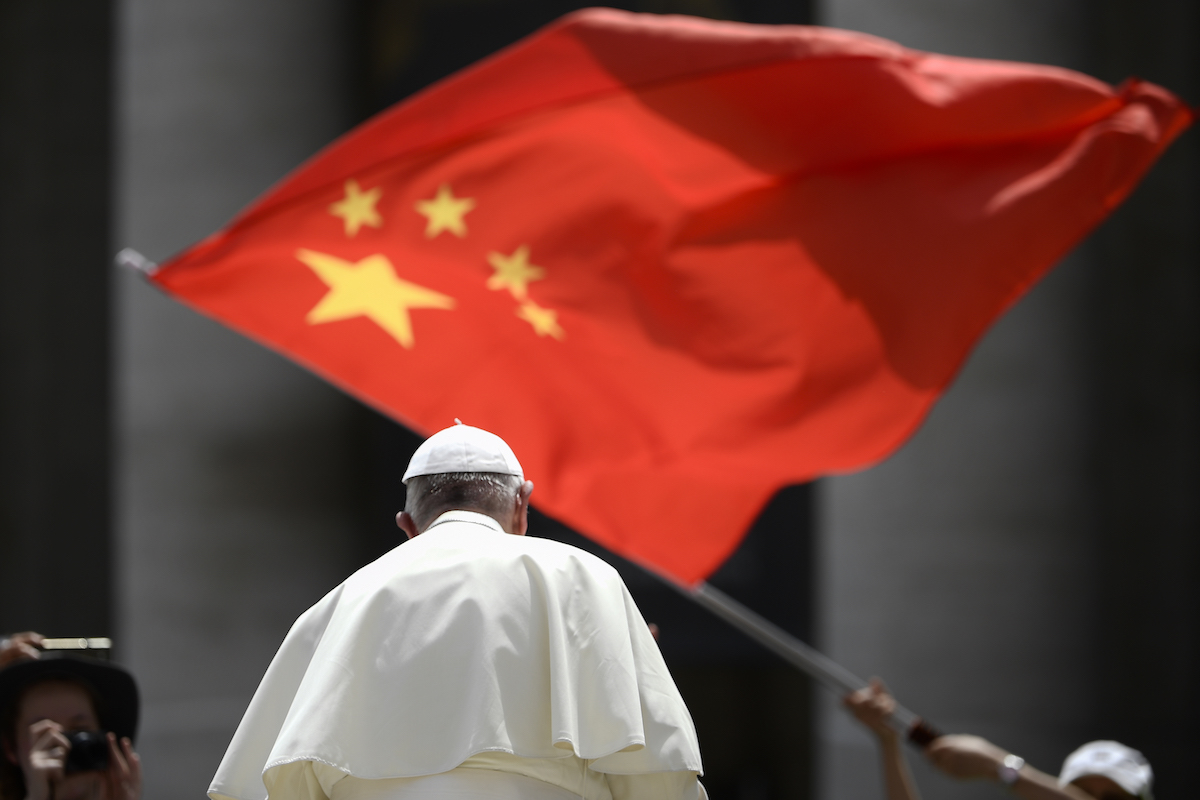On April 4, Bishop Shen Bin, until then Bishop of Haimen, was installed as the new Bishop of Shanghai by the Chinese Communist Party. The Vatican stated officially that “the Holy See learned from the media of the installation” the morning it happened.
The text of the Vatican-China deal of 2018, renewed in 2020 and 2022, is secret, but it is known that it regulates the administration of the Catholic dioceses and the appointment of bishops. The latter are still selected by the CCP but should be officially appointed by the Vatican. In the case of Shanghai, Shen Bin was not appointed by the Vatican as Bishop of that city. Yet, he was installed.
On July 15, the Holy See announced that Pope Francis had appointed Shen Bin as Bishop of Shanghai, transferring him from Haimen. Of course, this happened more than three months after he had already been installed in Shanghai by the CCP. The Vatican said that it had “rectified a canonical irregularity” for “the greater good of the diocese.”
The only good served seems to have been the one of the CCP. However, the incident did have consequences. In an interview that is more detailed in the Italian than in the English version published by the Vatican, Cardinal Pietro Parolin, the Holy See’s Secretary of State, made several important statements.
First, while the text of the agreement remains secret, he confirmed that the CCP breached it. “It is indispensable that all episcopal appointments in China, including transfers, be made by consensus, as agreed,” Parolin said, to avoid “disagreements and misunderstandings.” With “surprise and regret,” the Vatican had to note that the agreement had not been respected.
Second, Parolin commented that one problem still unsolved concerns the “regular communication of the Chinese Bishops with the Bishop of Rome, indispensable for effective communion, knowing that all this belongs to the structure and doctrine of the Catholic Church, which the Chinese authorities have always said they do not want to alter.”
Here, Parolin acknowledged that bishops formally appointed by the Pope do not maintain a communication with the Pope. When Bishop Shen Bin was installed in Shanghai in April, long before Pope Francis appointed him, he promised during the ceremony that he would “adhere to the principle of independence and self-government” that is at the core of the Patriotic Catholic Church, and has traditionally meant independence from the Vatican. This is the very principle the 2018 agreement should have modified.
Third, Parolin said that “Chinese Catholics, even those defined as ‘clandestine,’ deserve trust,” and should be “respected in their conscience and their faith.” The use of the word “conscience” was surely not coincidental. When the Vatican-China deal of 2018 was signed, there was much fanfare about the fact that the “clandestine” Catholic Church had ceased to exist and in fact had merged with the Patriotic Catholic Church.
Those who denied that this was the case, and observed that there were many Catholic conscientious objectors who refused to join the Patriotic Church, were attacked by self-appointed pro-Chinese “Vatican experts,” who accused “Bitter Winter” and others to try to sabotage the agreement.
Now, the Vatican Secretary of State admits that the “clandestine church” is alive and well. He reiterates the request of the Vatican Guidelines of 2019 (which some claim are no longer in force) that the members of this “clandestine church,” i.e. the Catholic conscientious objectors who refuse to join the Patriotic Church, should be “respected.”
Our readers know that this is not the case: the only form of respect the Catholic conscientious objectors receive is that they are harassed and put in jail. In the case of Shanghai (and others) the Vatican was not treated with much respect either. The CCP may regard the fact that it has decided to swallow even those new blatant violation of the deal as a victory.
However, hidden in plain sight in Cardinal Parolin’ s interview, there are the important admission that the “clandestine church” still exists and a promise, although somewhat vague, that Rome, who does not regard its members as rebellious, would in some way try to protect them.
If the request of “respect” for the conscientious objectors is serious, since they will never be “respected” by the CCP, Cardinal Parolin just placed a time bomb under the Vatican-China deal of 2018, whose explosion may one day destroy it.
Massimo Introvigne is an Italian sociologist of religions who is the founder and managing director of the Center for Studies on New Religions (CESNUR). He is the author of some 70 books and the editor-in-chief of online magazine Bitter Winter which focusses on religious liberty and human rights in China.
This article is from the online magazine Bitter Winter.
The views expressed in this article are the opinions of the author and do not necessarily reflect the editorial stance of LICAS News.
